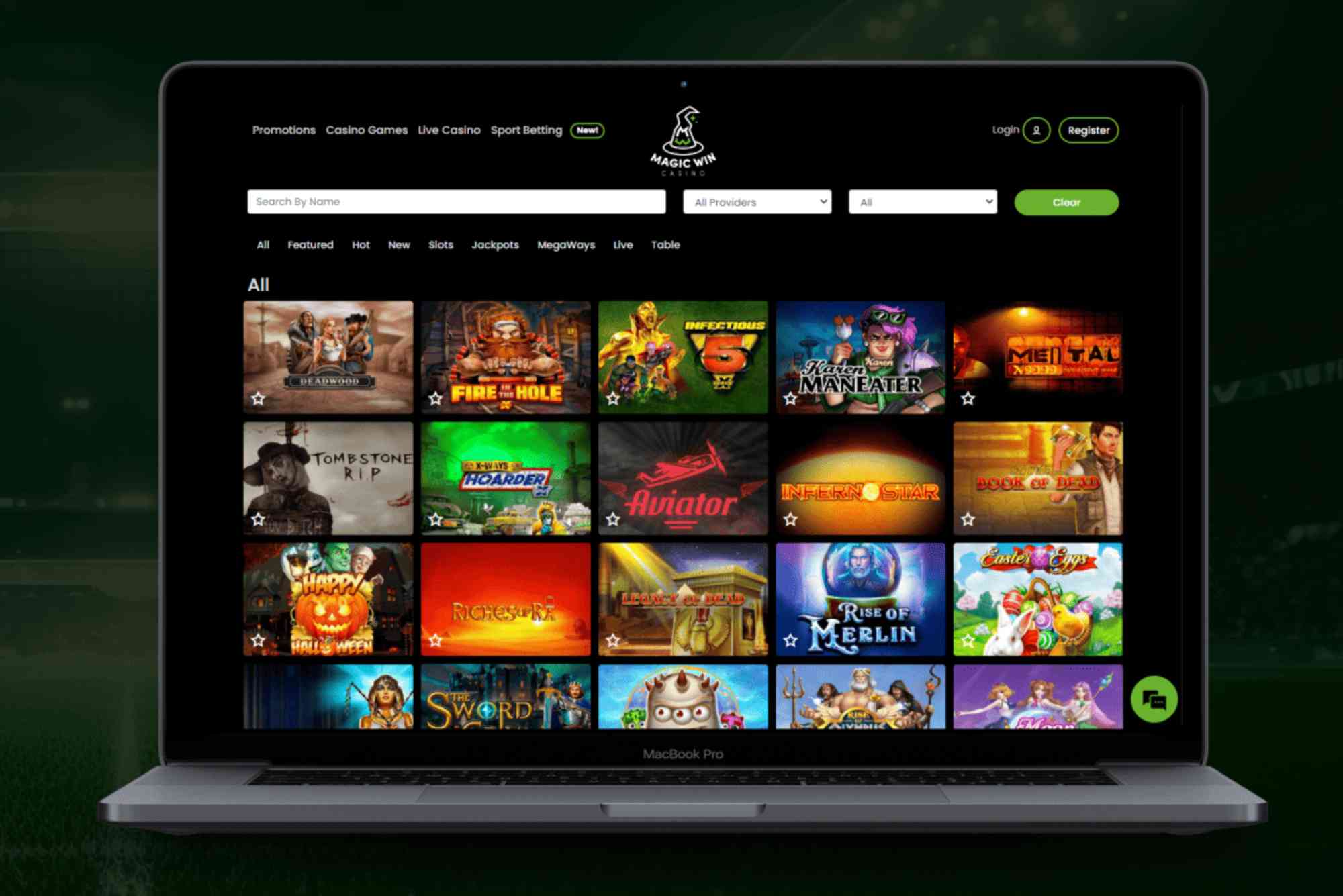The modern casino is far more than flashing lights, spinning reels, and clinking chips. Beneath the surface, a sophisticated system of data collection and analysis quietly operates, ensuring that every spin of the slot or shuffle of the cards can be tailored to each player’s unique preferences. In this article, we’ll explore how casinos gather and interpret behavioral data, why personalized game offers matter, and how players ultimately benefit from a more engaging and relevant gaming experience.
Understanding Behavioral Data in a Casino Context
At its core, behavioral data refers to any information casino operators collect that describes what players do—how long they play, which games they favor, how frequently they deposit, and even the pace at which they wager. Historically, brick-and-mortar casinos relied on basic tracking methods. A player’s loyalty card punch, a note about a high roller, or even an observant pit boss could provide anecdotal insights into playing habits. But as casinos evolved into digital and hybrid venues, data collection became far more precise.
Online casinos and modern land-based properties capture a wealth of granular details. Every click on a digital slot, every decision at a live dealer table, and every voucher redeemed contributes to a comprehensive behavioral profile. Even in physical venues, electronic table games and loyalty card systems feed data into centralized platforms. Behind the scenes, algorithms parse this information to identify patterns: Does a player prefer high-variance slots or low-stakes table games? Do they chase progressive jackpots or stick to classic reel machines?
By compiling these data points, casinos can tailor promotional campaigns in unprecedented ways. That might mean delivering a free spin on a new slot title to a known slot enthusiast, or sending a match bonus specifically for live dealer poker to someone who has recently played Texas Hold’em. The end goal is simple: deepen player engagement, encourage repeat visits, and extend playing sessions—all while ensuring patrons feel understood and valued.
How Data Collection Works
To appreciate the power of behavioral data, it’s helpful to understand the mechanisms behind its collection. When you first register on an online casino or join a land-based loyalty program, you provide basic personal details: name, email, date of birth. From that initial registration forward, every interaction you have becomes a building block of your player profile.
In an online environment, cookies and session tracking record every page view, bet size, and game outcome. If you hesitantly jump between three different slot titles before settling on one, the casino’s software notes that exploratory pattern. If you pause at a blackjack table for only a handful of rounds, that too gets logged. Over days and weeks, these distinct actions coalesce into a picture of your preferred games, bet levels, session lengths, and even the times of day you are most active.
Land-based casinos increasingly mirror this data-driven approach. Your loyalty card, swiped at slot machines or scanned at table games, flags each wager you place. Eye-tracking cameras, microphone arrays, and RFID-enabled chips feed additional insights about your betting speed, vocal expressions (for VIP recognition), and chip-buy patterns. Even security cameras, originally intended for loss prevention, can feed anonymized metrics into behavioral analytics platforms.
Crucially, these data pipelines are not siloed. Whether you’re playing online from home or at a physical property on an evening out, a unified player ID ensures every spin and every hand contributes to the same central dossier. That synergy allows casinos to seamlessly integrate online and offline data, creating a 360-degree view of player habits.
Translating Raw Data into Personalized Offers
Raw behavioral data by itself is a jumble of numbers and timestamps. It’s only through advanced analytics—often powered by machine learning—that casinos can transform mere logs into actionable insights. Let’s unpack that transformation journey:
-
Segmentation and Clustering: At a broad level, casinos group players according to shared characteristics. High rollers who favor table games might form one cluster. Moderate-stakes slot enthusiasts could be another. Casual players who deposit infrequently yet stay for days at a time might represent a third. By identifying these segments, casinos can design targeted promotional efforts rather than broadcasting generic offers.
-
Predictive Modeling: Once segments exist, predictive algorithms forecast which players are most likely to engage with a given incentive. If a known baccarat player has not logged in during the past week, predictive models might suggest a custom match bonus on that game to lure them back. For online players who tend to play in the evening on weekends, email or push notifications arrive precisely when they are most receptive.
-
Real-Time Personalization: The most advanced casinos update offers on the fly based on real-time behavior. Suppose a player logs in and begins trialing a brand-new slot. Within minutes, the system notes the trial play and pushes a pop-up offer: “Enjoy 10 Free Spins on this brand-new title—no deposit needed.” That immediate recognition of current behavior fosters excitement and a feeling of exclusivity.
By weaving together segmentation, prediction, and real-time triggers, casinos craft individualized offers that align with each player’s profile. Instead of sending a generic “50% match up to $500,” the offer feels curated: “We know you love high-payout slots—here’s 20 free spins on our latest high-variance release.”
Examples of Customized Game Offers in Action
To illustrate the power of behavioral data in truly human terms, consider the following real-world examples informed by conversations with industry insiders and seasoned players.
Example A: The Slot Explorer
Imagine a player who tries dozens of slot titles each month but rarely sticks around for more than ten spins. This pattern might indicate curiosity over commitment. To capitalize on that exploratory mindset, an online casino could offer a “Slot Sampler Pack”—perhaps five free spins on five different new slots. Because the offer directly acknowledges the player’s tendency to sample multiple games, it is more likely to resonate. When the player eventually discovers a slot they enjoy, the casino can follow up with a reload bonus specifically on that favorite title to encourage prolonged engagement.
Example B: The Table Games Strategist
A high-stakes blackjack player, analyzed over several months, shows steady betting at multiple land-based casino locations every Friday evening. The casino’s loyalty data reflects that pattern, so ahead of the next weekend, the player receives an SMS or email with an invitation: “Join us this Friday for an exclusive +$5,000 blackjack match deposit bonus at our VIP high-limit room.” By tying the offer to both game preference and historical play timing, the casino significantly increases the odds that the player returns to the specific venue and stakes level.
Example C: The Lapsed Live Dealer Enthusiast
Suppose a player consistently enjoyed live dealer roulette when they first joined an online platform. Over the last month, they haven’t logged in. The analytics engine flags this as an “inactive but valuable” profile. To re-engage, the casino emails a “Comeback Offer” that provides 10% cashback on live dealer losses up to a certain threshold. Because this player previously demonstrated a penchant for live gaming, a tailored cashback incentive feels thoughtful rather than random.
Balancing Personalization and Responsible Gaming
While personalized offers drive engagement and revenue, responsible casinos must ensure that targeted promotions do not inadvertently fuel unhealthy gambling habits. Regulatory bodies around the world increasingly mandate responsible gaming safeguards. For example, a player’s behavioral data could reveal patterns of chasing losses or rapid, high-frequency bets. When such red flags appear, a robust system should intervene—prompting the player to set deposit limits, offering self-exclusion options, or connecting them to support resources.
Leading operators incorporate real-time protection mechanisms. If a player’s session escalates beyond previously observed durations or bet sizes, the platform might automatically pause promotional messaging to that individual. Instead, responsible gaming messages appear: “We notice you’ve been playing for several hours. Remember to take breaks. Set your limit here.” In that way, personalization does not solely serve promotional ends but also fosters a safe, respectful gaming environment.
The Rise of Cross-Platform Personalization
Today’s players expect a seamless experience whether they log in via desktop, mobile app, or visit a brick-and-mortar venue. True personalization demands that a casino unify data from all these touchpoints. A player who deposits $200 via mobile, plays casino games for two hours, and then later attends a land-based property must be recognized as the same individual.
This cross-platform data integration enables unified promotions. A player who lost consistently at a land-based slot during a recent visit might receive a personalized “second chance” offer for the equivalent digital slot game later that evening. Conversely, a robust online high-roller might be invited to a Sunday evening VIP night at the physical casino once they return to their preferred city.
To support that synergy, top casino operators invest heavily in customer data platforms (CDPs) and real-time event streaming infrastructures. These technologies aggregate, cleanse, and deduplicate data, ensuring that each player’s profile accurately reflects their latest behaviors. Consequently, whether an offer arrives via push notification, email, text message, or a physical mailer, it seamlessly aligns with the player’s overall engagement history.
Why Players Appreciate Customization
At first, the idea of casinos tracking your every spin and decision may sound intrusive. Yet savvy players quickly recognize the benefits of well-crafted personalized offers. When promotions align with their actual preferences, they feel appreciated rather than exploited. Consider these benefits:
-
Relevance: Instead of receiving generic deposit bonuses for games you never play, you see offers for games you actually enjoy. That improves your overall experience and reduces marketing fatigue.
-
Enhanced Value: Tailored promotions often include higher-value incentives—such as free spins on your favorite slot or VIP table privileges—because they target motivations you’ve already demonstrated.
-
Time Savings: You spend less time wading through irrelevant mailers or pop-ups, as the casino’s system already knows where you find enjoyment.
-
Discovery: Occasionally, personalized suggestions introduce you to similar but unfamiliar games you might love—for instance, a new baccarat variant if you’ve shown a preference for standard baccarat.
-
Rewarding Loyalty: As a frequent player of a particular game type, you directly benefit from promotions that reward your continued play on that game, reinforcing your bond with the platform.
By acknowledging the player’s choices rather than bombarding them with irrelevant deals, casinos can foster loyalty and reduce churn. Over time, players notice that the personalized offers translate to a more enjoyable gaming experience, strengthening their longer-term engagement.
Integrating “Betting Sites Not on GamStop”
Responsible players in the UK sometimes look for platforms outside the self-exclusion framework known as GamStop. Certain individuals find that GamStop’s restrictions prevent them from accessing betting opportunities at offshore or third-party operators. In those cases, casinos may highlight their alternatives via specialized promotions. For example, when a player searches for “betting sites not on GamStop,” they might be directed to curated resources comparing unregulated or offshore sites. One such resource is available via betting sites not on GamStop, which lists international operators.
When a casino or affiliate recognizes interest in non-GamStop operators, it may offer a broader range of game recommendations and risk disclaimers. While this practice can seem controversial, some players value having options beyond domestic self-exclusion protocols, especially if they have reached their self-imposed limits at regulated sites. Of course, responsible operators always ensure clarity around licensing, ensure players understand the lack of local regulatory protections, and continue to encourage safe gambling practices.
The Role of Data Privacy and Player Trust
Collecting behavioral data inevitably raises concerns around privacy. Legally, casinos operating in jurisdictions like the EU must comply with regulations such as GDPR. Even in regions without strict GDPR-like mandates, reputable casinos publicly disclose their data handling practices and allow players to opt out of certain tracking. Transparency is essential: players should know what data is collected, how it is used, and whom it may be shared with.
Leading casinos go beyond minimum compliance. They anonymize sensitive metrics, encrypt user identifiers, and limit data retention to necessary periods. When marketing teams craft personalized offers, they do so on aggregated and anonymized segments rather than exposing individual players. This approach builds trust: when players recognize that their data remains secure and that personalization benefits them without infringing on fundamental privacy rights, they are more likely to engage deeply.
Predicting the Future of Personalized Casino Gaming
As artificial intelligence models grow more sophisticated, we can expect even more nuanced personalization. Imagine a world where a casino’s AI assistant learns not just that you like low-volatility slots, but also that you typically pause after watching five consecutive spins, or that you avoid table games when the dealer appears fatigued (as inferred from camera analysis). Promotions might adapt in real time—pausing if you appear disinterested, or offering a tutorial if the AI senses confusion.
Voice-activated chatbots could greet you: “Hello, Sarah, welcome back. We noticed you enjoyed progressive jackpot slots last week—here are three new titles we believe you’ll love.” When cross-border play becomes more common, AI might even factor in local cultural holidays. For a player celebrating Lunar New Year, the casino could present themed games and bonuses tied to that event.
Additionally, blockchain technologies might empower players with more data ownership. Instead of casinos unilaterally collecting and analyzing all data, players could grant permission to share certain metrics in exchange for higher bonuses or VIP perks. That shift toward “player-first data sovereignty” would create a healthier ecosystem—where casinos respect boundaries and individuals reap explicit benefits for sharing information.
Conclusion
Casinos today leverage behavioral data not as a mere marketing gimmick, but as the cornerstone of a truly customized gaming experience. By collecting and analyzing how players engage—with which games, in what time frames, and at what stakes—operators can craft targeted promotions that feel less like broad advertising and more like genuine appreciation for the player’s preferences. As technology advances, that personalization will only deepen.
However, responsible gaming considerations must remain at the forefront. Personalization should not override player well-being. Instead, data-driven interventions can help safeguard vulnerable players while rewarding regulars with enticing offers. Whether you’re a slot fanatic, a roulette enthusiast, or a poker strategist, you can expect a more meaningful, seamless, and trust-based relationship with your casino of choice.








